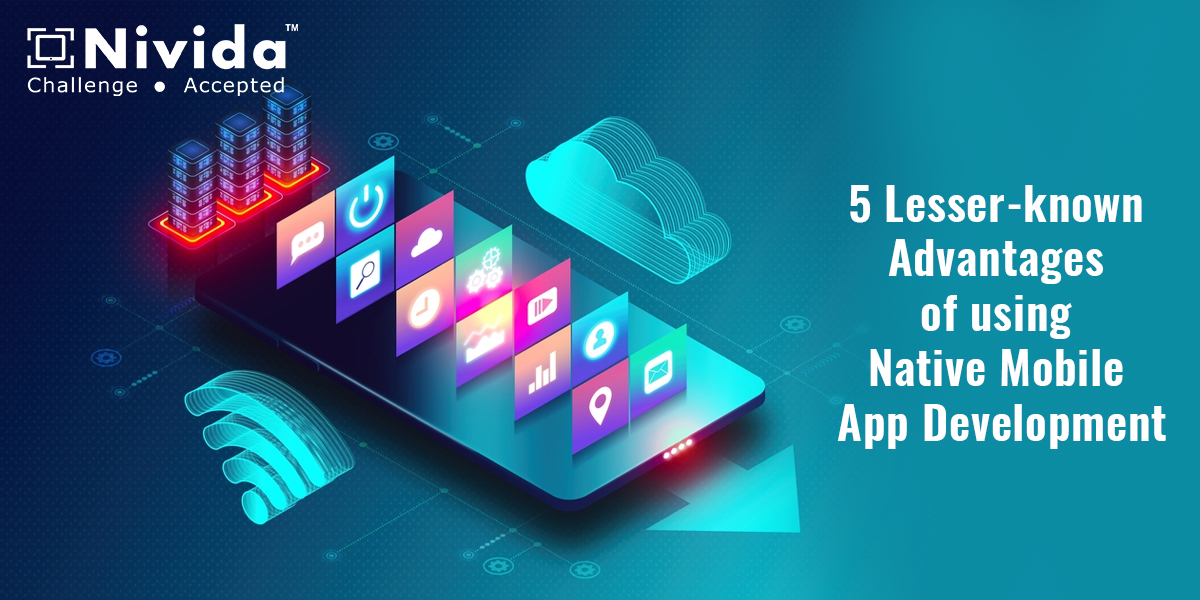Many businesses now place a high value on developing a mobile app. Even so, because the distinctions between many development approaches are getting increasingly hazy, it can be difficult to settle on one. This blog will delve deeper into the advantages of using Native Mobile App Development for your next mobile project.
Native Mobile App Development:
It is possible to build native mobile apps for specific mobile operating systems and then distribute them via third-party app stores. Objective-C or Swift are the most common programming languages used by iOS app developers. Java or Kotlin are the programming languages of choice for Android development.
Software development kits (SDKs) are available from both Apple as well as Google to app developers. Native mobile app development has numerous advantages over other types of apps, such as Hybrid or Web. It's critical for companies to be aware of the advantages and disadvantages of app development as mobile software becomes increasingly significant. Native mobile app development has the following advantages:
5 Lesser-known Advantages of using Native Mobile App Development:
- The best performance:
The software is built and optimised for a specific platform using native mobile app development. As a result, the programme runs at a blisteringly fast speed. Apps created for one platform and compiled using the platform's main programming language tend to be much faster and more responsive. Consequently, the programme is significantly more efficient. The app may take advantage of the smartphone's processing power because it is stored on the device. The content and graphic aspects of a native mobile app are already stored on the user's phone, resulting in faster load speeds.
- More secure apps:
Different browsers and technologies such as HTML5, JavaScript, as well as CSS are used in web apps. You can ensure your customers' data security by developing a mobile application with Native mobile app development.
- More intuitive and interactive apps:
When it comes to user input and output, native mobile apps perform better. Apps that mimic the look and feel of a device's operating system are known as "synthetic" apps. The enhanced user experience offered by native mobile apps is unquestionably their most valuable feature. The term "native app" refers to software that has been developed expressly for a certain operating system. They follow the rules to the letter, ensuring that the user's experience is enhanced and in line with the particular operating system. Since each platform has its own UI standards, the app's flow is more natural. This makes it easier for the user to learn how to do things like deleting an element from the programme. Following a set of rules minimises the learning curve, and users may engage with apps more naturally by employing actions and gestures they are already accustomed to.
- Complete access to the full feature set of various devices:
To maximise the software and operating system's capabilities, native apps are designed for their specific platform. As a result of their direct access to the hardware of the device, such as the camera, GPS system, as well as microphone, these apps are more responsive to the user's input. Moreover, push notifications in native app development offers a number of other advantages. APNS (Apple's Push Notification Service) and Google's Cloud Messaging (Google's Cloud Messaging) require your app bundle ID to send push alerts (GCM).
- Fewer bugs during app development:
Maintaining two separate applications in one codebase is more complex than maintaining two separate applications in two separate codebases. Because you're not dependent on a cross-platform technology like Xamarin or Cordova, there are fewer chances for issues to occur when developing a native app. As a result, hybrid apps are notoriously difficult to design and deliver an unsatisfying user experience.
This issue becomes more prevalent when new versions of iOS or Android apps are launched. When it comes to designing apps, Native app developers have the most up-to-date software development kits (SDKs). When an operating system is updated, users of native apps can take advantage of new platform features.

